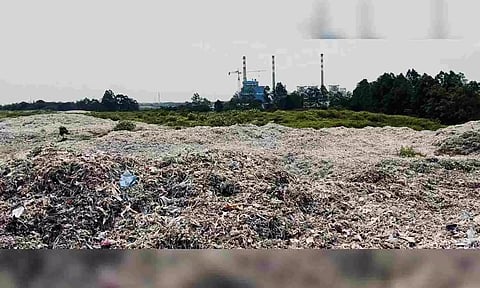

ENNO HINZ
Southeast Asian countries, including Malaysia, Vietnam, Thailand, and Indonesia, are facing an influx of illegal waste shipments from industrialized nations, with a considerable amount trafficked from Europe. According to a new UN report-mapping waste trafficking trends from Europe and Southeast Asia, criminal actors exploit loopholes and legitimate business structures, making waste trafficking one of the most significant crimes that can affect the environment. Despite existing regulations, traffickers are empowered by ineffective law enforcement and low penalties when caught, and tempted by opportunities for easy profit. The European Commission estimates that 15 to 30% of waste shipments from the EU are illegal, generating billions of euros in illicit revenue annually.
Once trash is improperly disposed of it becomes everyone's problem. The urgency of addressing waste trafficking cannot be overstated, Masood Karimipour, Southeast Asia representative of the UN office on drugs and crime, told DW. According to the UN report, ASEAN countries collectively imported more than 100 million tons of metal, paper and plastic waste, valued at nearly $50 billion (47 billion euros) between 2017 and 2021.
The global waste trade has undergone a significant shift in recent years due to a series of measures set by China in 2018 to tackle the influx of unwanted waste into the country. The ripple effect from China_s waste ban led to a redirection of global waste streams, notably towards Southeast Asia. Countries such as Indonesia have emerged as primary destinations for both legitimate and illegal waste shipments.
In Indonesia, there is no ecosystem that supports sustainable consumption, production and recycling, Yuyun Ismawati , senior advisor at the environmental NGO Nexus3 Foundation, told DW.
After 2018, Indonesia experienced a sudden increase in waste imports, with paper and plastic waste predominantly shipped from western European countries, according to the Indonesia Bureau of Statistics. Nexus3 found that plastic waste often contaminates paper scraps, posing an alarming threat to the environment and health in regions like Java or Sumatra.
Problematic plastics are either discarded or donated by paper-importing companies to local communities, who then engage in illegal sorting and burning of plastic.
The fires emit alarming levels of dioxins and hazardous chemicals and ultimately infiltrating human food chains. Due to the smoke and toxic food, many villagers develop respiratory and stomach diseases or even cancer and must leave their homes.
Despite its detrimental consequences for health and the environment, waste trafficking is still seen as a highly lucrative criminal activity that goes under the radar in Southeast Asia.
According to Serena Favarin, a criminologist at Italy's Universita Cattolica del Sacro Cuore, traffickers use sophisticated methods and supply chains to evade controls and ship waste to countries where regulations are less stringent and prices for illegal disposal of waste are way lower. The crime is not enforced in the same way in different countries, and this creates a misalignment in which waste is treated, she told DW. In many destination countries, for instance, the regulations of waste trafficking do not fall under criminal law, but under civil and administrative regulations.